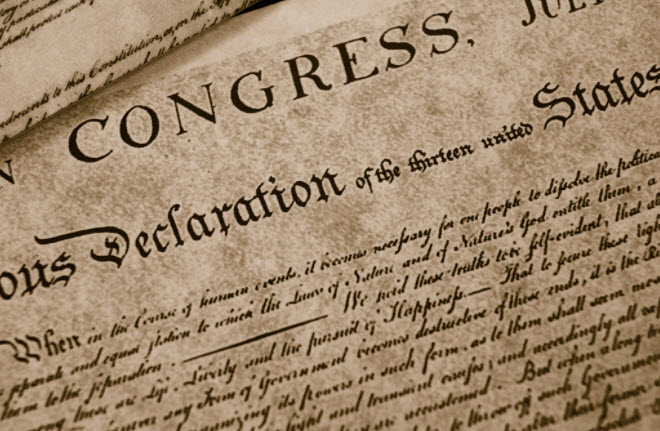
The United States Declaration of Independence is the basic expression of the principles, the mythic structure that is our American Nation. The “truths (held) to be self-evident, that all men are created equal, endowed by their Creator with certain unalienable rights,” that “governments are instituted among men deriving their just rights (only) from the consent of the governed,” is the foundation of all that we espouse. They are the necessary bases for our way of life, despite the myriad of experiences that may happen from time to time where we fail to live up to these tenets. In the final analysis, all of our levels of government can only be successful if they are willing to fall back to these principles to resolve disputes.
However, it is my belief that the only communities of women and men that live up to these basic American principles in an almost absolute fashion are Alcoholics Anonymous and its fellow Twelve Step programs. We have no leaders, our volunteers and service personnel do not govern. Our only authority is a loving God as he may express himself through our Group Conscience. Decisions about how our Fellowships are to proceed are made by Groups operating only with the Steps and Traditions to guide them. In times of stress and conflict, we can all fall back on our basic Steps and Traditions, and our collective commitments to sobriety, to restore order.
I consider myself an avowed American with a firm commitment to the principles of our American Founding…and living in the communities of 12 Step programs reinforces the joy I have felt since birth about living in an American world based on these principles.
Of course, the 12 Steps and 12 Traditions could not be the only things that would determine the stability of the broader societies that represent our Nation. Multi-tiered governmental systems are necessary to enact laws, prosecute and restrain the lawless, and interpret conflicting dicta that may derail societal systems. Without them, the innate chaotic tendencies of many of us could destroy us. But we in the Fellowships seem to avoid these breakdowns by our own individual and collective commitment to sobriety.
For all of us sufferers of addiction, the similarities of our Groups to American societal systems provide for wonderful reflection on the beauty of our Fellowships. But it is the fundamental commitment we all feel to the success of these Fellowships that is the real magic, and the one that keeps us from the occasional breakdowns in functioning that might happen in other, broader systems.
